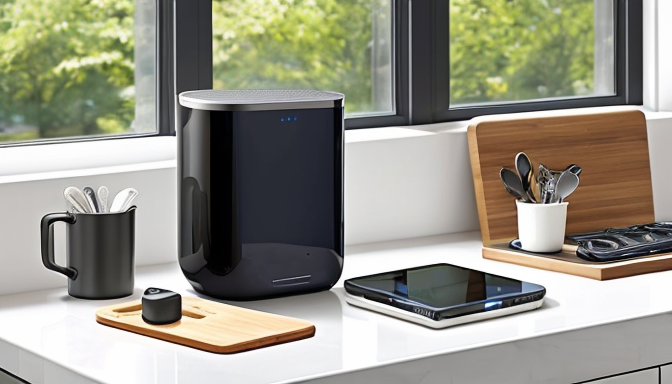In 2023, artificial intelligence is not just a buzzword; it’s a game-changer that is reshaping our everyday experiences in ways we never imagined. From the moment we wake up to the time we go to bed, AI is seamlessly integrated into our lives, enhancing efficiency and convenience. Have you ever wondered how a simple voice command can set your morning alarm, brew your coffee, and even read the news to you? That’s the magic of AI! It’s like having a personal assistant who knows your preferences and anticipates your needs.
One of the most exciting breakthroughs this year is the advancement in AI-driven tools that help us manage our time and tasks. Imagine a world where your calendar app not only schedules appointments but also suggests optimal times based on your productivity patterns. AI algorithms analyze your habits and help you prioritize tasks, making your day more productive and less stressful. It’s like having a co-pilot navigating through the chaos of daily life!
Moreover, AI is making waves across various sectors, including education, finance, and entertainment. In education, personalized learning experiences powered by AI adapt to individual learning styles, ensuring that no student is left behind. In finance, AI algorithms predict market trends with astonishing accuracy, helping investors make informed decisions. As we embrace these innovations, it’s clear that AI is not just a tool; it’s a partner in our journey towards a smarter, more efficient future.
AI in Healthcare
Artificial intelligence is not just a buzzword; it’s a game changer in the healthcare sector. Imagine walking into a clinic where your medical history is instantly accessible, and the diagnosis is almost immediate. Well, that’s the reality we’re stepping into! AI technologies are revolutionizing healthcare by enhancing diagnostics, personalizing treatment plans, and ultimately improving patient care.
For instance, AI algorithms can analyze medical images with astonishing accuracy, often outperforming human radiologists. This capability leads to earlier detection of conditions such as cancer, significantly increasing the chances of successful treatment. Moreover, AI-powered tools are being utilized to create tailored treatment plans based on a patient’s unique genetic makeup and lifestyle, making healthcare more personalized than ever before.
But the benefits don’t stop there! AI is also streamlining administrative tasks, allowing healthcare professionals to focus more on patient care rather than paperwork. This is crucial in a world where time is of the essence. Here’s a quick look at some of the key AI applications in healthcare:
- Predictive Analytics: Anticipating patient needs and outcomes.
- Telemedicine: Virtual consultations powered by AI.
- Robotic Surgery: Precision surgeries with minimal invasiveness.
In summary, the integration of AI into healthcare is paving the way for better health outcomes and more efficient systems. As we continue to explore these advancements, the future of healthcare looks not only promising but also exciting.

AI in Personal Assistance
Artificial intelligence is not just a buzzword anymore; it’s a game changer that is redefining personal assistance in ways we never thought possible. Imagine waking up in the morning and your smart assistant already knows your schedule, the weather, and even your favorite breakfast recipe! With AI, this is becoming a reality. These intelligent systems are designed to streamline our daily tasks, making our lives not only easier but also more productive.
From smart home devices that adjust the temperature based on your mood to virtual assistants that can manage your emails and reminders, AI is enhancing our organizational skills. Have you ever thought about how much time you spend on mundane tasks? With the help of AI, we can reclaim those hours and focus on what truly matters. It’s like having a personal assistant who never sleeps!
Moreover, AI tools are constantly evolving, introducing new features that adapt to our preferences. For instance, applications like Google Assistant and Amazon Alexa are equipped with machine learning capabilities, allowing them to learn from our interactions and improve over time. This means they can offer personalized suggestions that align with our unique lifestyles.
In a world where every second counts, AI in personal assistance is a boon for both personal and professional settings. By automating repetitive tasks, we can allocate our time to more creative and fulfilling endeavors. Isn’t it fascinating how technology can enhance our everyday lives?
Frequently Asked Questions
- How is AI changing healthcare in 2023?
AI is making waves in healthcare by enhancing diagnostic accuracy, personalizing treatment plans, and streamlining patient care processes. Imagine having a virtual assistant that can analyze your health data and suggest tailored treatment options—it’s like having a personal doctor available 24/7!
- What are some examples of AI in personal assistance?
From smart home devices that adjust your lighting and temperature to virtual assistants like Siri and Alexa that help you manage your schedule, AI is everywhere! These tools not only make daily tasks easier but also help boost your productivity, allowing you to focus on what really matters.
- Can AI improve my daily productivity?
Absolutely! AI tools can automate mundane tasks, organize your to-do lists, and even remind you of important deadlines. Think of it as having a super-efficient sidekick that never gets tired—helping you get more done in less time!
- What industries are most affected by AI?
While healthcare and personal assistance are significant, AI is also transforming industries like finance, education, and transportation. It’s like a domino effect, where one sector’s advancements push others to innovate and improve their services.